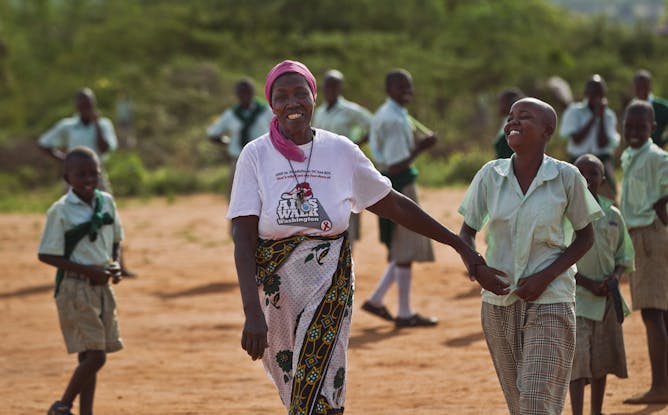|
HIV is still one of the world’s most serious health problems – more than two million new infections are reported each year. But what if something that all of us have in our medicine cabinet could offer some hope for those who are the most vulnerable to HIV infection? Today in The Conversation Canada, Colin Graydon and Monika Kowatsch of the University of Manitoba tell us about a pilot project they conducted with sex workers in Africa that showed Asprin can lower the risk of HIV by reducing inflammation in their blood and genital tracts.
Almost two weeks after the U.S. midterm elections, the Republicans are licking their wounds. Bruce Berman of Queen’s University has teamed up with Daniel Levine of University of Michigan give us a history of how the GOP of Ronald Reagan became the party of Donald Trump.
The recent controversy about Statistics Canada’s proposal to collect detailed financial data from 500,000 Canadians raised questions about the government agency. But Gregory Mason of the University of Manitoba says the controversy didn’t need to happen the way it did if StatsCan had done things differently.
We live in an age where everything seems polarized and extreme views are making their way into the mainstream. Dianne Gereluk of the University of Calgary examines whether there’s a role for schools to play in promoting political civility.
And finally…are you going to work this morning? Meaning, are you jumping on a bus or your car to travel to your place of employment? Helen Hambly and Jamie Lee of the University of Guelph have some advice for you: working from home – also known as telecommuting – will save you a lot of money.
Regards,
|

In this 2012 photo, grandmother Janet Kitheka, 63, collects her adopted “granddaughter” Lucy, 13, at the end of the school day in the yard of the Hot Courses Primary School, in the village of Nyumbani which caters to children who lost their parents to HIV, and grandparents who lost their children to HIV in Kenya.
(AP Photo/Ben Curtis)
Colin Graydon, University of Manitoba; Monika Kowatsch, University of Manitoba
Research shows that Aspirin could reduce the number of HIV infections in women at high risk for HIV, such as Kenyan female sex workers.
|

In this December 2017 photo, U.S. President Donald Trump congratulates Senate Majority Leader Mitch McConnell of Kentucky, while Paul Ryan looks on, during a ceremony at the White House after the final passage of tax overhaul legislation.
(AP Photo/Manuel Balce Ceneta)
Bruce J. Berman, Queen's University, Ontario; Daniel Levine, University of Michigan
Donald Trump may have executed a hostile takeover of the Republican party, but the GOP has been laying the groundwork for decades.
|

Canadians are up in arms about Statistics Canada’s push for their financial data. They shouldn’t be.
(Shutterstock)
Gregory C Mason, University of Manitoba
Statistics Canada has been tone-deaf in its push for the financial data of Canadians from banks, but that data is essential to forming good public policy.
|

Schools have the opportunity to develop students’ voices and agency to shape greater political civility and civic engagement.
Shutterstock
Dianne Gereluk, University of Calgary
The extent to which schools foster political deliberation, engagement, understanding and empathy has far-reaching implications for our democracy.
|

Woman working on laptop.
Andrew Neel/Unsplash
Helen Hambly, University of Guelph; Jamie Lee, University of Guelph
Telecommuting provides an economic benefit for employees working remotely, researchers have found.
|
Health + Medicine
|
-
Lisa Kane, University of Cape Town
Road traffic injuries are one of the leading causes of death worldwide.
|
|
Politics
|
-
Luis Gómez Romero, University of Wollongong
Two trucks carrying migrants have gone missing in Veracruz, Mexico. A witness says that '65 children and seven women were sold' to a band of armed men. Other caravan members have reached the border.
|
|
Culture + Society
|
-
Rebecca Moore, San Diego State University
Throughout the movement's history, African Americans and whites lived, worked and protested side-by-side. It was one of the few long-term experiments in American interracial communalism.
|
|